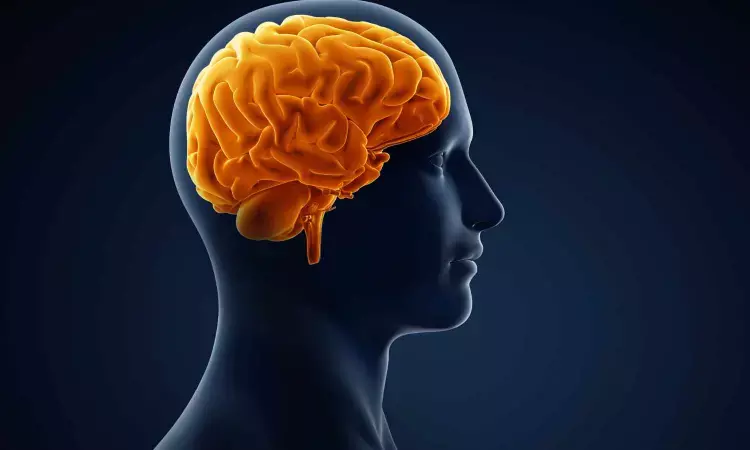- Home
- Medical news & Guidelines
- Anesthesiology
- Cardiology and CTVS
- Critical Care
- Dentistry
- Dermatology
- Diabetes and Endocrinology
- ENT
- Gastroenterology
- Medicine
- Nephrology
- Neurology
- Obstretics-Gynaecology
- Oncology
- Ophthalmology
- Orthopaedics
- Pediatrics-Neonatology
- Psychiatry
- Pulmonology
- Radiology
- Surgery
- Urology
- Laboratory Medicine
- Diet
- Nursing
- Paramedical
- Physiotherapy
- Health news
- Fact Check
- Bone Health Fact Check
- Brain Health Fact Check
- Cancer Related Fact Check
- Child Care Fact Check
- Dental and oral health fact check
- Diabetes and metabolic health fact check
- Diet and Nutrition Fact Check
- Eye and ENT Care Fact Check
- Fitness fact check
- Gut health fact check
- Heart health fact check
- Kidney health fact check
- Medical education fact check
- Men's health fact check
- Respiratory fact check
- Skin and hair care fact check
- Vaccine and Immunization fact check
- Women's health fact check
- AYUSH
- State News
- Andaman and Nicobar Islands
- Andhra Pradesh
- Arunachal Pradesh
- Assam
- Bihar
- Chandigarh
- Chattisgarh
- Dadra and Nagar Haveli
- Daman and Diu
- Delhi
- Goa
- Gujarat
- Haryana
- Himachal Pradesh
- Jammu & Kashmir
- Jharkhand
- Karnataka
- Kerala
- Ladakh
- Lakshadweep
- Madhya Pradesh
- Maharashtra
- Manipur
- Meghalaya
- Mizoram
- Nagaland
- Odisha
- Puducherry
- Punjab
- Rajasthan
- Sikkim
- Tamil Nadu
- Telangana
- Tripura
- Uttar Pradesh
- Uttrakhand
- West Bengal
- Medical Education
- Industry
Single-dose psychedelic boosts brain flexibility for weeks, peer-reviewed study finds

In a groundbreaking research study, University of Michigan researchers have discovered that a single dose of a psychedelic compound can enhance cognitive flexibility-the brain's ability to adapt to changing circumstances-or weeks after administration, potentially revolutionizing treatments for depression, PTSD, and neurodegenerative diseases.
The study, published today in the journal Psychedelics, demonstrates that mice treated with a single dose of 25CN-NBOH, a selective serotonin 2A receptor agonist, showed markedly improved performance in reversal learning tasks compared to control groups when tested 2-3 weeks after treatment.
Key Findings
"What makes this discovery particularly significant is the sustained duration of cognitive benefits following just one psychedelic dose," explains Professor Omar J. Ahmed, the study's senior, corresponding author from the University of Michigan's Department of Psychology. "We observed enhanced learning adaptability that persisted for weeks, suggesting these compounds may induce lasting and behaviorally meaningful neuroplasticity changes in the prefrontal cortex."
Using an innovative automated sequential learning paradigm, researchers measured how effectively mice could adapt to rule reversals-a standard test for cognitive flexibility. The psychedelic-treated mice demonstrated superior adaptability compared to saline controls, with enhanced task efficiency, higher percentages of correct trials, and increased reward acquisition during the reversal phase.
Implications for Brain Science
The results complement existing cellular research showing psychedelic-induced structural remodeling in the prefrontal cortex but uniquely demonstrate sustained cognitive benefits persisting long after the immediate effects of the drug have dissipated.
As interest in psychedelic medicine continues to grow, this research raises intriguing questions about how psychedelics might reshape neural pathways governing flexible thinking. Could these compounds potentially reopen critical periods of brain plasticity? What molecular mechanisms underlie these long-lasting cognitive improvements? How might the timing and frequency of administration affect long-term neuroplasticity?
“The current study focused on the long-term effects of a single psychedelic dose. A key question is what happens with two, three, or even twenty doses taken over several months. Is every additional dose increasingly beneficial for flexible learning or is there a plateau effect or even a negative effect of too many doses? These are important questions to answer next in the quest to make psychedelic medicine more rational and mechanistic,” according to Dr. Ahmed.
Sex Differences and Clinical Potential
Importantly, the study found that both male and female mice showed significant improvements in cognitive flexibility, suggesting the potential broad applicability of psychedelic therapy across biological sexes.
"The most striking aspect of our findings is that these cognitive benefits were measured 15-20 days after a single psychedelic administration," notes Elizabeth J. Brouns, first author of the study. "This suggests that a single dose of a psychedelic isn't just temporarily altering perception, but potentially inducing lasting beneficial changes in brain function."
Methodological Advances
The study's automated behavioral task represents a significant methodological advance for evaluating flexible learning, enabling researchers to efficiently evaluate cognitive flexibility in future investigations of psychedelic compounds. This high-throughput approach could accelerate the development of targeted psychedelic therapies for specific cognitive deficits.
Reference:
Elizabeth J. Brouns et al, Single-dose psychedelic enhances cognitive flexibility and reversal learning in mice weeks after administration, Psychedelics (2025). DOI: 10.61373/pp025r.0002.
Dr Kamal Kant Kohli-MBBS, DTCD- a chest specialist with more than 30 years of practice and a flair for writing clinical articles, Dr Kamal Kant Kohli joined Medical Dialogues as a Chief Editor of Medical News. Besides writing articles, as an editor, he proofreads and verifies all the medical content published on Medical Dialogues including those coming from journals, studies,medical conferences,guidelines etc. Email: drkohli@medicaldialogues.in. Contact no. 011-43720751


